使用EF Code First搭建简易ASP.NET MVC网站并允许数据库迁移
本篇使用EF Code First搭建一个简易ASP.NET MVC 4网站,并允许数据库迁移。
创建一个ASP.NET MVC 4 网站。
在Models文件夹内创建Person类。
public class Person {public int ID { get; set; }public string FirstName { get; set; }public string LastName { get; set; } }在Controls文件夹内创建PersonController,选择使用Entity Framework的模版、模型类,创建数据上下文类,如下:
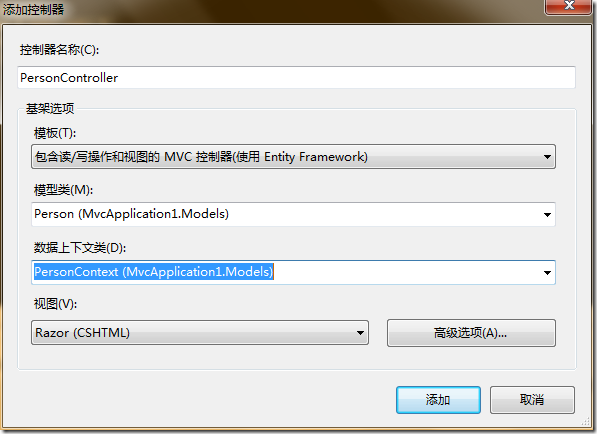
点击"添加"后,除了在Controls文件夹内多了PersonController,在Models文件夹中多了PersonContext类,如下:
using System.Data.Entity;namespace MvcApplication1.Models{ public class PersonContext : DbContext {// 您可以向此文件中添加自定义代码。更改不会被覆盖。// // 如果您希望只要更改模型架构,Entity Framework// 就会自动删除并重新生成数据库,则将以下// 代码添加到 Global.asax 文件中的 Application_Start 方法。// 注意: 这将在每次更改模型时销毁并重新创建数据库。// // System.Data.Entity.Database.SetInitializer(new System.Data.Entity.DropCreateDatabaseIfModelChanges<MvcApplication1.Models.PersonContext>());public PersonContext() : base("name=PersonContext"){}public DbSet<Person> People { get; set; } }}在Web.config中的connectionStrings多了如下配置,选择了默认的localdb数据库。
<connectionStrings> ...... <add name="PersonContext" connectionString="Data Source=(localdb)\v11.0; Initial Catalog=PersonContext-20150210155119; Integrated Security=True; MultipleActiveResultSets=True; AttachDbFilename=|DataDirectory|PersonContext-20150210155119.mdf" providerName="System.Data.SqlClient" /> </connectionStrings>
在Views/文件夹中多了Create.cshtml, Delete.cshtml, Details.cshtml, Edit.cshtml, Index.cshtml这个几个视图文件。
现在,我们想启动EF的自动迁移功能。点击"工具"-"库程序包管理器"-"程序包管理器控制台",输入enable-migrations:
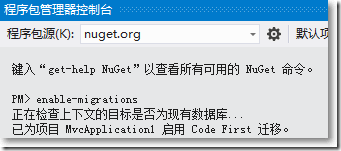
在根目录下多了一个Migrations文件夹,以及生成了一个Configuration类,如下:
namespace MvcApplication1.Migrations{ using System; using System.Data.Entity; using System.Data.Entity.Migrations; using System.Linq; internal sealed class Configuration : DbMigrationsConfiguration<MvcApplication1.Models.PersonContext> {public Configuration(){ AutomaticMigrationsEnabled = false;}protected override void Seed(MvcApplication1.Models.PersonContext context){ // This method will be called after migrating to the latest version. // You can use the DbSet<T>.AddOrUpdate() helper extension method // to avoid creating duplicate seed data. E.g. // // context.People.AddOrUpdate( // p => p.FullName, // new Person { FullName = "Andrew Peters" }, // new Person { FullName = "Brice Lambson" }, // new Person { FullName = "Rowan Miller" } // ); //} }}以上,我们可以添加一些种子数据。
现在需要把种子数据迁移到数据库,在"程序包管理器控制台",输入add-migration initial:

此时,在Migrations文件夹内多了201502100756322_initial类,记录了本次迁移的动作。
namespace MvcApplication1.Migrations{ using System; using System.Data.Entity.Migrations; public partial class initial : DbMigration {public override void Up(){ CreateTable("dbo.People",c => new {ID = c.Int(nullable: false, identity: true),FirstName = c.String(),LastName = c.String(), }).PrimaryKey(t => t.ID); }public override void Down(){ DropTable("dbo.People");} }}最后别忘了要更新数据库,在"程序包管理器控制台",输入update-database:
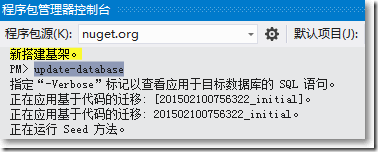
这时候,浏览/Person/Index,能实现所有的增删改功能。
如果这时候,我们希望在Person中增加一个属性,比如类型为int的Age属性。
public class Person {public int ID { get; set; }public string FirstName { get; set; }public string LastName { get; set; }public int Age { get; set; } }我们如何告诉数据库呢?
还是在"程序包管理器控制台",输入add-migration 名称:

此时,在Migrations文件夹内多了201502100812315_addedage类,记录了本次迁移的动作。
最后,还在"程序包管理器控制台",输入update-database以更新数据库。
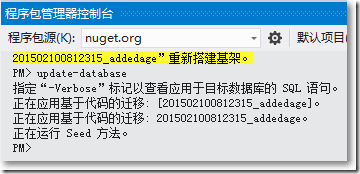
为了让视图与当前Person类同步,可以先后删除Person文件夹和PersonController控制器,再重新创建PersonController控制器,选择使用Entity Framework的模版、Person类,PersonContext上下文类。
至此,简单体验了EF Code First创建数据库并实现数据库迁移的方便之处。
以上就是这篇文章的全部内容了,希望本文的内容对大家的学习或者工作具有一定的参考学习价值,谢谢大家对的支持。如果你想了解更多相关内容请查看下面相关链接
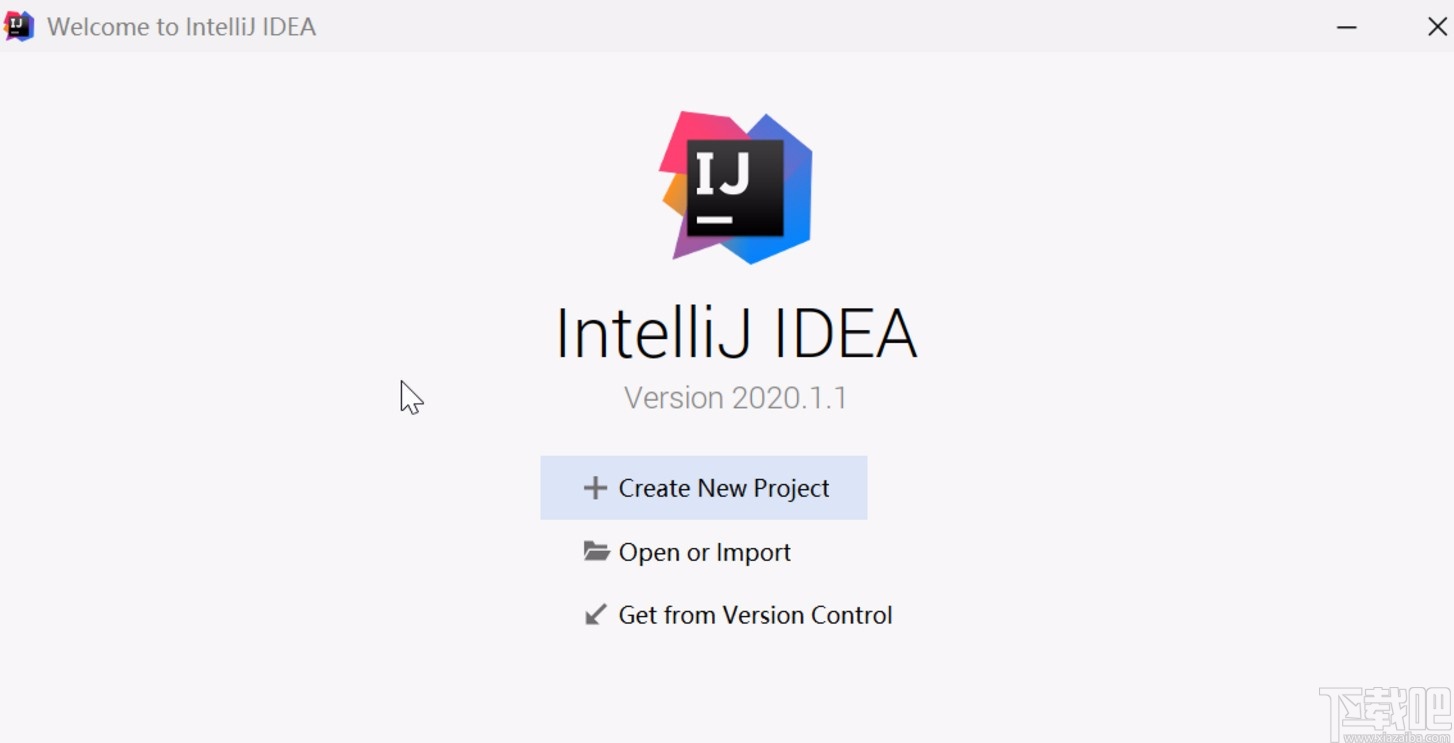
 网公网安备
网公网安备